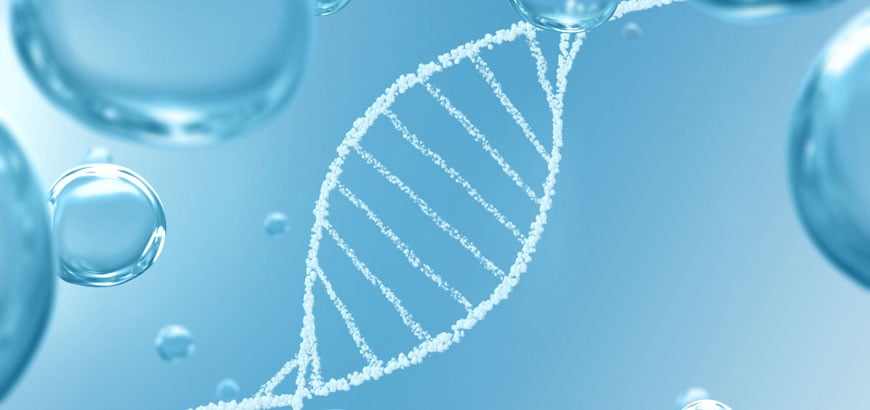Read time: 3 minutes
By: McKesson Editorial Team
In today’s evolving environment for specialty drugs, high-touch services that enhance patient outcomes are playing an increasingly important role in market access and patient care delivery. When it comes to the emerging technology of cell and gene therapy, health systems need to partner with a trusted and experienced distributor to overcome upcoming challenges.
Cell and gene therapies have the potential to revolutionize the treatment of serious and life-threatening diseases, including many cancers and rare diseases, while also spurring an evolution in product manufacturing and delivery. Understanding the barriers and risks early in drug development is paramount for ensuring these therapies deliver on their promises for patients.
What is Cell and Gene Therapy (“CGT”)
Cell and gene therapy is an innovative treatment approach that uses cells or genetic material to treat or prevent diseases. Cell therapy involves the transplantation or manipulation of cells to replace, repair, or enhance the function of damaged or diseased tissues or organs. It utilizes different types of cells, such as stem cells or immune cells, to achieve therapeutic effects. These cells can be obtained from the patient (autologous) or from a donor (allogeneic). Cell therapy has the potential to treat a wide range of conditions, including certain types of cancer, genetic disorders, and degenerative diseases.
Gene therapy aims to treat or prevent diseases by introducing, modifying, or replacing genetic material within a person's cells. The genetic material can be DNA, RNA, or other nucleic acids. The therapy can involve delivering therapeutic genes to the patient's cells to correct genetic mutations, enhance cellular functions, or regulate gene expression. Gene therapy holds potential for treating genetic disorders, inherited conditions, and some acquired diseases.
Overcoming Market Access and Logistical Challenges
While cell and gene approvals are gaining traction, the rate of regulatory approval remains an issue with a limited amount of real-world deployment. The first therapy was approved by the FDA in 2017, and through 2022, there are only 27 FDA approved CGTs, which represents approximately 8% of the 340 approved biologics, only a small fraction of conventional drugs.1 However, CGTs continue to make up a larger proportion of total approvals of innovative and novel drugs.
In addition, cell and gene therapies face some complex logistical challenges that can potentially jeopardize patient safety and limit patient access if not managed properly. It is critical that health systems understand the proper transportation, distribution, and storage requirements, especially since most products require real-time temperature monitoring and control.
For example, a great deal of precision is required when it comes to CAR T-cell therapy. The complex process necessitates special handling and a company that is able to meet logistical challenges within precise timelines in order to help ensure patient safety and maximize patient access.
A successful commercialization strategy for a CAR T-cell therapy or an orphan drug must carefully consider how to:
- Execute complex logistical processes
- Maintain the quality and integrity of the product
- Minimize the risk of adverse events
- Achieve patient access to a very expensive drug
- Assist stakeholders with financial risk
- Enhance the customer/stakeholder experience
McKesson’s High-Touch Services
The key to commercializing revolutionary cell and gene therapies requires high-touch services that can help enhance patient outcomes such as patient safety, access, adherence, quality of life, and effectiveness.
McKesson’s distribution models optimize channels to reach a variety of healthcare providers and help ensure patient safety and access. With McKesson’s best-in-class technologies and breadth of service offerings, we are able to work with biopharma and life science companies to design just the right distribution model for each unique product. We leverage our scale with global suppliers, and seamlessly integrate new distribution strategies for specialty products, creating a more transparent and equitable supply chain.
Moreover, our third-party logistics (3PL) services provide a seamless service model for patient and customer ease of access. By combining McKesson’s long-standing distribution services success with pharmaceutical experience, our 3PL services help biopharma companies deliver products accurately and on time to more pharmacies, hospitals, clinics, and physician practices than any other healthcare services provider in North America.
Successful commercialization of cell and gene therapies requires a comprehensive and multifaceted approach that spans scientific, regulatory, financial, and market considerations. It also necessitates collaboration with various stakeholders and a patient-centric focus to ensure the therapies reach those in need.
Ready to learn how McKesson can help your health system achieve more?

Share
Post
Post
Email